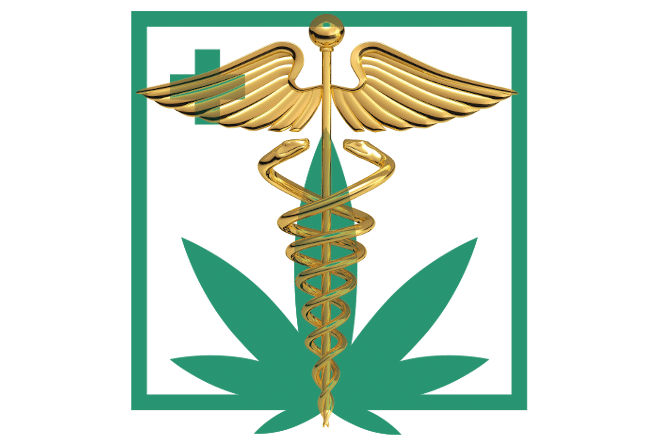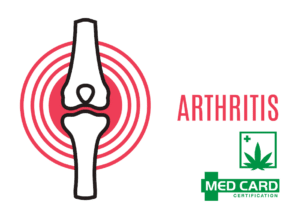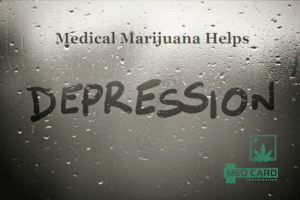
How To Use Medical Marijuana for TMJ
- Can medical marijuana be used to treat pain and stiffness associated with the temporomandibular joint (TMJ)?
- Increasing numbers of medical marijuana doctors are recommending cannabis remedies to their TMJ patients.
- Cannabinoids produced in marijuana help relieve pain by both reducing tension in the jaw and modulating pain response.
- Several medical marijuana strains, formulas, and delivery methods are available to TMJ patients.
TMJ can be an extremely painful and even debilitating medical condition. Increasingly, patients are turning to dispensaries nationwide for relief as more and more doctors award medical marijuana cards to their TMJ patients.
TMJ is caused by stress. Stress produces anxiety and tension in the jaw. Anxiety can also be caused by chemical imbalances in the brain. Tension causes muscle spasticity (tightness), grinding of teeth, jaw pain, headaches, and dizziness. And these symptoms in turn can result in sleep disorders and depression. Medical marijuana offers relief of both the causes and the symptoms for some TMJ patients.
Many of the treatments available to TMJ patients offer limited relief and the potential for long-term side effects. In severe cases, patients might become addicted to opioids. This can lead to serious cardiac disease and death.
For many TMJ patients, medical marijuana offers a safe and natural remedy that’s completely non-toxic and non-addictive with very few side effects when used properly.
How does medical marijuana help treat TMJ pain?
Marijuana produces a class of compounds called phytocannabinoids that have been shown to help relieve some of the causes and symptoms of TMJ. Cannabinoids have been shown to help reduce stress and anxiety, relax muscles, relieve pain, improve sleep, and reduce depression in some patients.
The human body also produces a class of cannabinoids called endogenous cannabinoids or endocannabinoids.
Plant-based cannabinoids found in marijuana act upon the human body in much the same way as endocannabinoids.
The brain produces cannabinoids in response to imbalances within the body. When any kind of imbalance or injury is detected, the brain produces particular cannabinoids that transit the bloodstream and relay particular instructions to cells throughout the body. This signaling system is referred to as the human endocannabinoid system or ECS.
Cannabis produces two major cannabinoids — THC and CBD — and several minor cannabinoids including CBG and CBN. Of these, THC is the only cannabinoid that produces intoxication (when used in sufficient quantities). However, another cannabinoid called delta-8 THC produced from CBD offers slightly intoxicating properties with some of the benefits of CBD.
Products containing THC may only be purchased legally at medical marijuana dispensaries nationwide. On the other hand, CBD, CBG, CBN, and D8THC are all available over-the-counter as long as they are produced from hemp and not marijuana. Anyone can buy CBD online or at local shops without a medical marijuana card.
Both CBD and THC are renowned for their anti-inflammatory and pain-relieving properties. However, CBD, in particular, is effective at reducing the underlying anxiety that causes TMJ in some patients while also acting as a muscle relaxant. THC, on the other hand, can increase anxiety when used in sufficient dosages. However, in small doses, THC can help to reduce depression and improve sleep.
Is there any scientific evidence that medical marijuana can help treat TMJ?
Although there has been very little clinical research on the use of medical marijuana specifically for treating TMJ, ample studies provide evidence of medical marijuana’s ability to reduce stress and anxiety, relax muscles, and relieve pain.
In one study, cannabinoids were shown to produce pain-relief and anti-inflammatory effects on TMJ joints in rats. And in a human research study, nearly half of individuals with multiple sclerosis (which also causes muscle spasticity) said they feel relief from their muscle spasms when they use marijuana. In another survey of MS patients who used marijuana, nearly all of them reported reduced pain and muscle spasticity.
Also, a study performed at a school of dentistry found that low doses of cannabinoids enhanced the effectiveness of other drugs used to relieve pain in TMJ patients.
Links to several studies on the ability of cannabinoids to reduce chronic pain can be found at the end of this article. We also have posts related to stress, anxiety, spasticity, sleep disorders, and depression for those who want to take a deeper dive.
How to treat TMJ with medical marijuana
The various causes and symptoms of TMJ can be treated with a variety of delivery methods. Individual marijuana strains produce varying levels of each of the cannabinoids. And cannabinoid-infused products such as edibles, capsules, tinctures, oils, patches, and inhalers can be produced with very specific cannabinoid ratios and formulations.
Stress, anxiety, sleeplessness, and depression, because they originate in the brain, are treated systemically via inhalation or oral applications. However, muscle tightness and pain can also be treated locally through the use of topical creams applied directly to the jaw.
Patients seeking immediate relief from stress, anxiety, and pain are best served with delivery methods offering a fast onset time. Smoking, vaping, dabbing, and inhalers offer almost instant effects as the cannabinoids are absorbed directly into the bloodstream through the lungs.
However, patients with lung or circulatory conditions might be best served with an inhaler that contains only pure cannabinoids and no smoke or vapor, both of which can harm the lungs and increase blood pressure in some patients.
TMJ patients should not be self-medicating. Consult with a marijuana doctor who is knowledgeable in the use of medical marijuana to treat TMJ. Qualified budtenders at medical marijuana dispensaries nationwide can also help patients choose an appropriate medical marijuana delivery method for their condition and lifestyle.

Sign Up for Medical Cannabis Today!
For potential patients, if you’re ready, we make it easy to connect with a medical marijuana doctor nearby or online. If you are interested in getting certified, please fill out the MMJ patient registration form below and press submit to get started. See if you qualify today!

MedCard Registration Form


Medical Marijuana Links:
Sources and additional reading
Research studies on medical marijuana for chronic pain
- Blockade of central cyclooxygenase (COX) pathways enhances the cannabinoid-induced antinociceptive effects on inflammatory temporomandibular joint (TMJ) nociception
- CB1 and CB2 contribute to antinociceptive and anti-inflammatory effects of electroacupuncture on experimental arthritis of the rat temporomandibular joint
- Low doses of cannabinoids enhance the antinociceptive effects of intracisternally-administered mGluRs groups II and III agonists in formalin-induced TMJ nociception in rats
- Journal of Pain – A randomized, placebo-controlled, crossover trial of cannabis cigarettes in neuropathic pain
- Neuropsychopharmacology – Comparison of the analgesic effects of dronabinol and smoked marijuana in daily marijuana smokers
- The Journal of Pain – Low-dose vaporized cannabis significantly improves neuropathic pain
- British Journal of Clinical Pharmacology – Cannabinoids for treatment of chronic non-cancer pain; a systematic review of randomized trials
- Cannabis for the Management of Pain: Assessment of Safety Study
- Medical cannabis use is associated with decreased opiate medication use in a retrospective cross-sectional survey of patients with chronic pain














